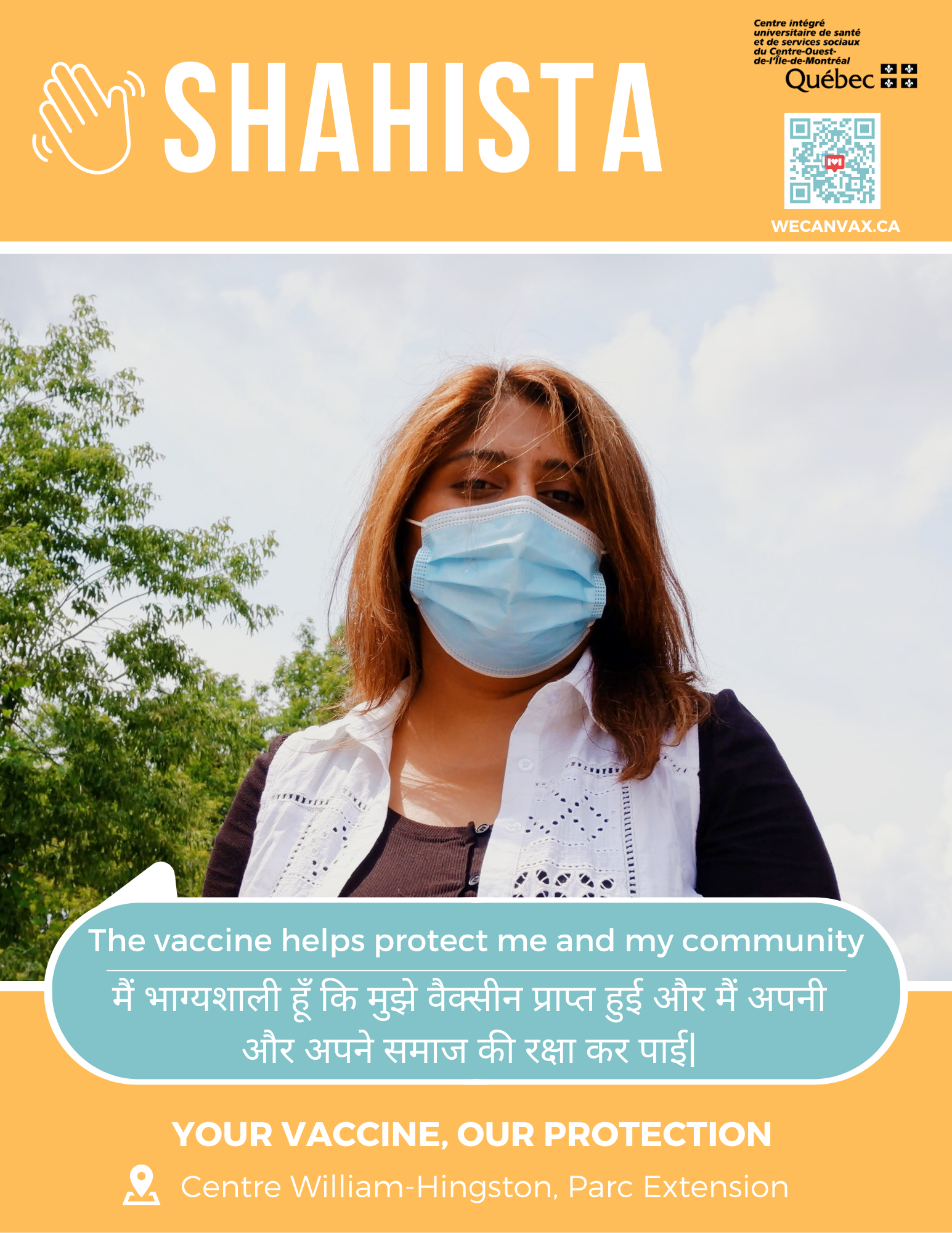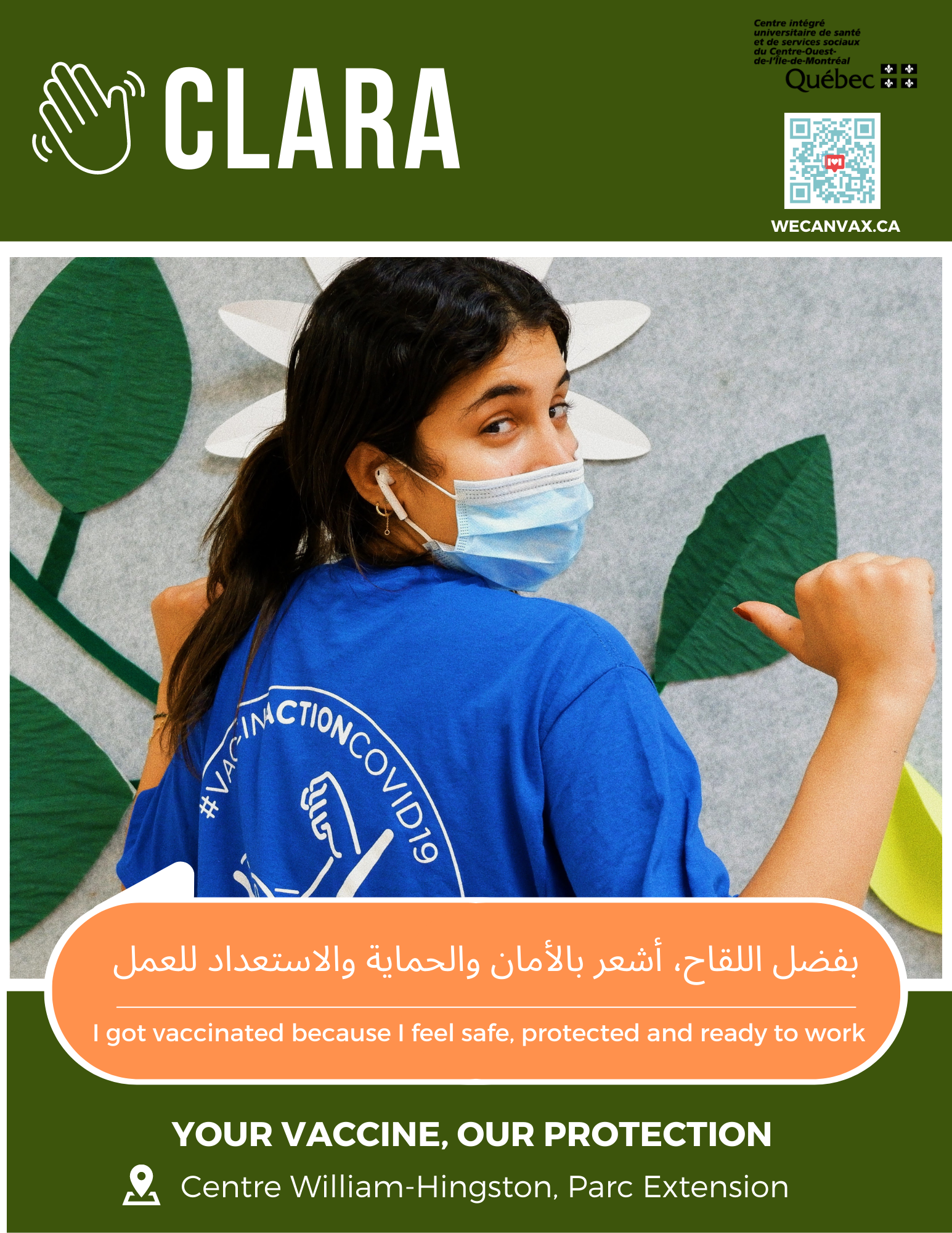 Montreal’s Parc-Extension is one of the poorest neighbourhoods in Canada, and the neighbourhood with the highest population density and immigrant population in Montreal. When Quebec’s COVID-19 vaccine rollout began in December 2020, public health authorities were concerned to see vaccine uptake was much lower among residents of Parc-Extension than other parts of the city. But in a dramatic turnaround in the months that followed, the neighbourhood’s first-dose rate went on to surpass Montreal’s by four percent by August 2021.
Montreal’s Parc-Extension is one of the poorest neighbourhoods in Canada, and the neighbourhood with the highest population density and immigrant population in Montreal. When Quebec’s COVID-19 vaccine rollout began in December 2020, public health authorities were concerned to see vaccine uptake was much lower among residents of Parc-Extension than other parts of the city. But in a dramatic turnaround in the months that followed, the neighbourhood’s first-dose rate went on to surpass Montreal’s by four percent by August 2021.
Research currently underway in McGill’s School of Population and Global Health is showing that community-led initiatives providing linguistically and culturally tailored services in Parc-Extension helped mobilize the neighbourhood’s residents towards getting vaccinated.
“Time and again, participants told us that having information translated to them in their languages, and by people they felt comfortable with – whether it be a community organizer, a neighbour, etc. – those were really the factors that helped them make their decision to get vaccinated,” explains Nora Moidu, a research assistant on the Advocating for Vaccine Confidence and Trust (ACT) in Parc-Extension, a research project supervised by Ananya Banerjee, Assistant Professor in the Department of Epidemiology, Biostatistics and Occupational Health at McGill.
Grassroots efforts make the difference
 Having conducted 50 interviews with Parc-Extension residents, the researchers have found that efforts by community organizations, such as WeCanVax and Table de quartier de Parc-Extension, to translate public health posters into Hindi, Urdu, Punjabi and other community languages as well as making door-to-door visits throughout Parc-Extension went a long way to improving access to healthcare services for immigrant groups in the neighbourhood.
Having conducted 50 interviews with Parc-Extension residents, the researchers have found that efforts by community organizations, such as WeCanVax and Table de quartier de Parc-Extension, to translate public health posters into Hindi, Urdu, Punjabi and other community languages as well as making door-to-door visits throughout Parc-Extension went a long way to improving access to healthcare services for immigrant groups in the neighbourhood.
For policymakers looking to improve public health outcomes, the researchers say it’s vital to consider the social determinants of health and foster trusting partnerships between governments and community organizations.
“Our research really showed the importance of tailoring activities to certain communities and – even more so – of working with community organizations,” Moidu says.
“A key takeaway is that funding is really required for these community organizations, because they often do most of the work in terms of providing these culturally tailored activities or services, which can then promote public health, as we saw through the increase in vaccination rates.”
